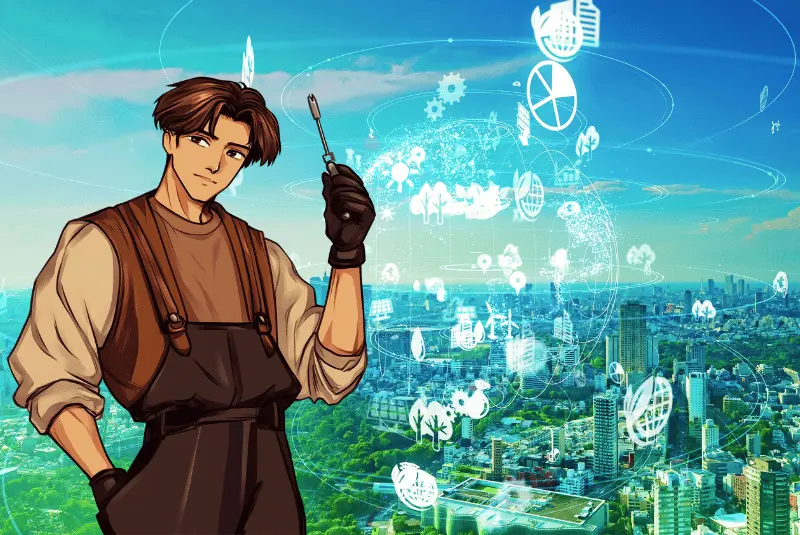


Dans un monde en quête de solutions face aux crises climatiques, sociales et énergétiques, une autre voie s’impose peu à peu : celle de l’innovation frugale. L’article publié récemment sur The Conversation en trace les contours : inventer des solutions sobres, adaptées, robustes, sans dépendre de technologies coûteuses ou complexes. Comme exemple, l’article met en avant un ventilateur, mis au point par la NASA pour les patients atteints de coronavirus, qui a été développé selon les principes de l’innovation frugale.
Cette philosophie est au cœur de la démarche low-tech promue par Äerdschëff et soutenue par le Fonds Citoyen de Résilience (FCR), notamment à travers le pilier Sécurité Écologique et Sociale de la Technologie.
Doing More with Less: The Low-Tech Approach
When frugal innovation meets our vision of technological ecological and social safety
Ecological and Social Security (SES) of Technology: a new compass for thinking differently about our relationship with technology
The FCR offers a bold and clear definition of technological safety:
“Promote low-impact, sustainable digital practices while breaking free from centralized, energy-hungry systems.”
This means:
- Reducing dependence on GAFAM and proprietary technologies
- Choosing open-source, reusable, repairable tools
- Building a shared technical culture rooted in local communities
Training Towards Technological Autonomy
At Äerdschëff asbl, we believe resilience begins with education. Our trainings empower individuals to explore and implement low-tech, fair, and human-centered solutions.
The Low-Tech Approach (3h)
Explore the foundations of sustainable, repairable, locally-adapted tech, hands-on and accessible.
Challenging Extreme Wattage (3h)
Reflect on our energy and digital habits, and learn how to reduce wasteful consumption in everyday life.
AI and Its Impacts (3h–6h)
Understand the ethical, social, and environmental consequences of AI and how to align it with low-tech values.
MoskitOS Workshop
Join a participatory build of a lightweight vehicle, an open-source trike and symbol of low-tech mobility resilience.
Towards Chosen Technology, Not Imposed
These trainings do not aim to reject technology, but rather to consider them as socio-technical systems: that is, as tools serving our ecological and social needs, our need for autonomy, and the preservation of the common good. From this perspective, frugality becomes a choice of intelligence, freedom, and responsibility.
Choosing frugality is choosing intelligence, freedom, and responsibility.
Going low-tech means building a resilient, inclusive, and planet-friendly future.
Ready to get involved?
Join a training, launch a mini-project, or host a workshop in your school, neighborhood, or organization.
📩 Contact: team@aerdscheff.lu
📅 Programmes: https://aerdscheff.lu/fr/offre/
🛠️ See our call for mini projects

